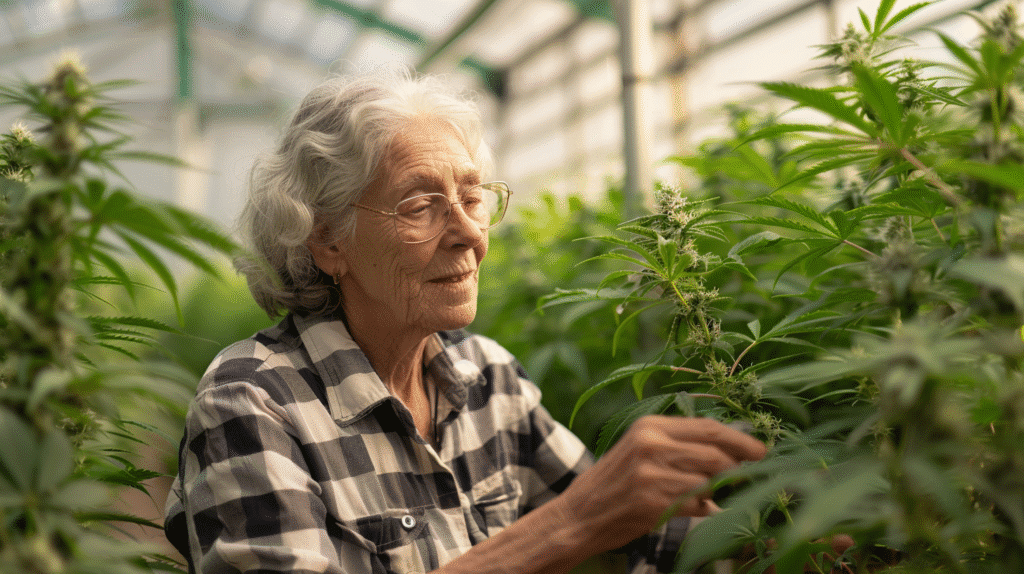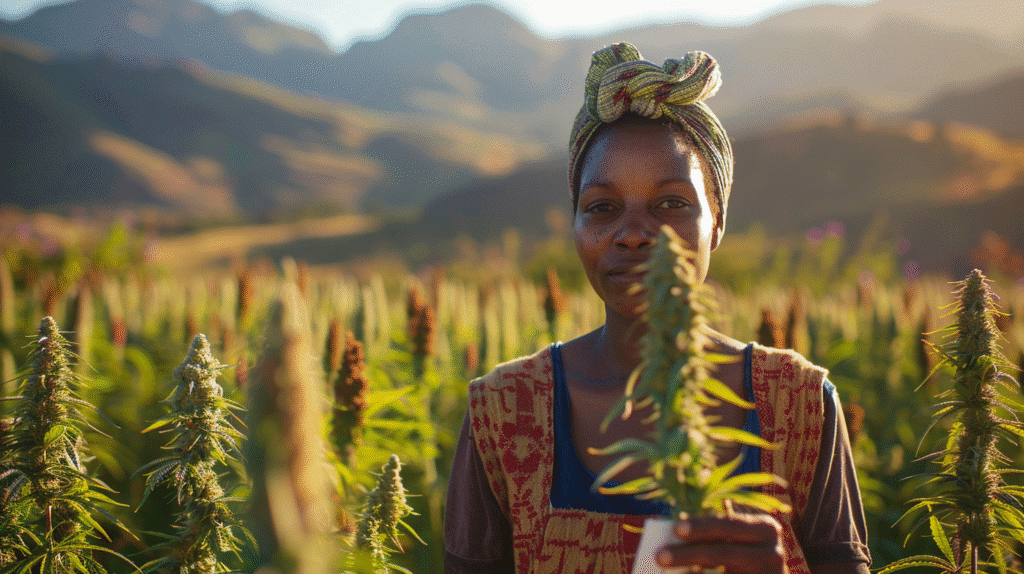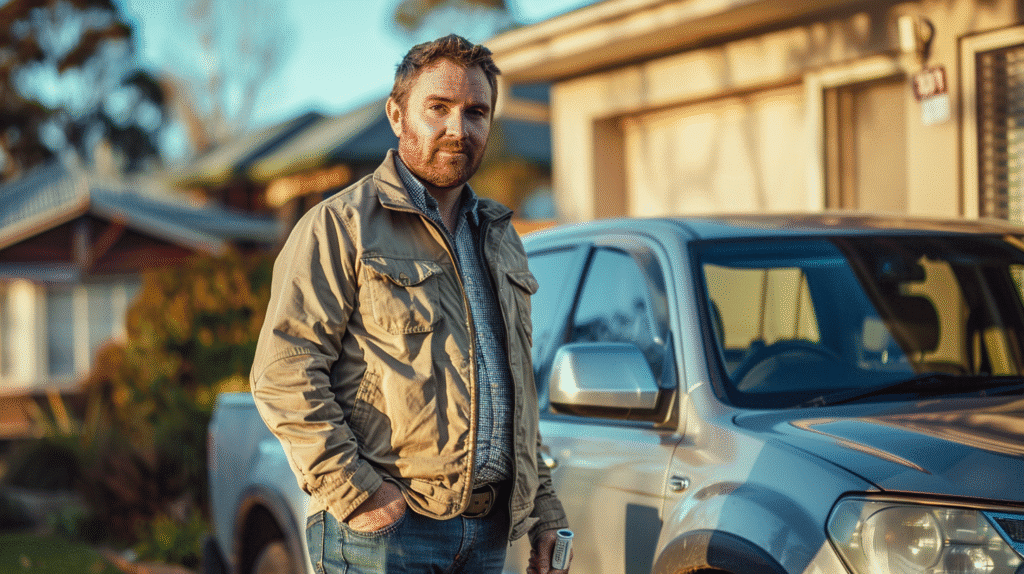Germany’s Pain Revolution: Cannabis Oil Outperforms Opioids

When 52-year-old Munich schoolteacher Sarah Mueller couldn’t stand for more than 10 minutes due to recurring back pain, she was faced with a common enough dilemma – endure pain or give in to opioid abuse. With unprecedented European clinical trials revealed as late as this week in October 2025, now we finally have a third option that’s revolutionizing everything.
Two big European clinical trials this month reported that cannabis oil did not only do better than placebo but also provided pain relief comparable to conventional opioids—without the disastrous risks of dependence that have created a global health crisis. The research involved over 1,200 patients with chronic pain across Germany, Austria, and Switzerland and indicated that 67% patients experienced clinically significant pain relief within 12 weeks of cannabis oil therapy.
What’s revolutionary is the one-on-one comparison: patients who got cannabis oil had 40% fewer adverse effects than the patients who got opioids, with no instances of dependency over a six-month study duration. In the view of lead scientist Dr. Klaus Richter at Munich Medical Center of the University of Munich, that’s “a paradigm shift in treating chronic pain in Europe.”
The human impact is already being felt. Mueller, one of those who participated in the trial, attributes cannabis oil to revitalizing her life. “I can lecture again. I can play with my grandchildren. I was stuck with misery-inducing pain or mental fuzziness from opioids for three years. Now I have neither.” She is one of thousands of patients in Germany switching from conventional painkillers to cannabis-based medicines.
Timing couldn’t be better. Europe is witnessing a burgeoning opioid epidemic that is a mirror replica of North America’s epidemic with fatalities from prescription pain pills soaring 15% annually across the EU. Health ministers from Germany, France, and the Netherlands are now fast-tracking regulatory clearance for cannabis-based pain drugs in hopes that Europe doesn’t follow the disastrous route that America did.
The trials also brought unintended advantages: patients slept better, felt anxious less often, and had improved overall quality of life. In comparison with opioids, which usually become required in increasingly larger doses, cannabis oil retained its potency over study period without dose escalation.
For international healthcare professionals, these results are confirmation of what patient advocates have asserted for decades: cannabis is more than a recreational substance—it is powerful medicine that may provide one of healthcare’s most significant solutions. With 100+ million Europeans suffering from chronic pain, and prescription opioid use on par with that of the United States figure, stakes couldn’t be higher.
Source: wunc.org
Panama’s Medical Cannabis Breakthrough

Rosa Martínez lived in secret for 30 years, illegally cultivating cannabis to help relieve her daughter’s epilepsy while risking jail time on a daily basis. It all came to a dramatic end in October 2025: Panama’s government not only legalized medical cannabis but made Rosa the nation’s first official cannabis growing consultant.
The transformation of Panama’s cannabis policy represents the most dramatic shift in Central American drug policy in decades. What makes this story extraordinary isn’t just the policy change—it’s who’s leading it. Rosa, a 64-year-old grandmother from Panama City, went from criminal to consultant overnight, bringing three decades of underground cultivation expertise into Panama’s legitimate medical cannabis industry.
“For 30 years, I lived in fear of police raids while trying to keep my daughter alive,” Rosa explains, tears streaming down her weathered face. “Her seizures were so severe that traditional medications weren’t working. Cannabis was the only thing that helped, but I was considered a criminal for growing it. Now the government is asking me to teach them how to do it right.”
New medical cannabis program in Panama began this October with a target to serve 50,000 patients by the end of this year. The government’s choice to collaborate with erstwhile underground cultivators such as Rosa represents a pragmatic observation: such people harbor invaluable experience that is not written in textbooks. Rosa has been educating government-licensed growers specific methods of propagating top-grade medical cannabis under Panama’s tropical condition.
The human consequence goes far beyond Rosa’s own individual case. Panama approximates that 200,000 citizens are qualified for medical cannabis therapy, especially for epilepsy, chronic pain, and cancer symptoms. By moving above-ground cultivation off-site, the administration ensures quality control, safe access, tax revenue—while ending criminalization of ill people and caregivers.
Rosa’s 35-year-old daughter was seizure-free for eight years with cannabis therapy from her mother. “My mother risked everything for me,” she says. “She spent decades perfecting growing techniques while always being afraid. And now she’s being celebrated as the expert she was all along. It’s justice, finally.”
The program has gained international attention as a showcase on how developing countries can develop from prohibition to regulation. Unlike developed nations that depend on costly pharmaceutical methods, Panama’s approach welcomes homegrown expertise as well as small-scale producers to make medical cannabis affordable and within reach for ordinary people.
Source: Newsroompanama
South Africa’s Hemp Revolution: Small Farmers Find Hope

When Nomsa Dlamini’s husband passed on from cancer in 2019, she was left with five children, a tiny piece of land in rural KwaZulu-Natal, and no means of income. In October 2025, she was presented with a permit from the South African government that might turn it all around: a permit to grow cannabis commercially.
Nomsa is among 664 cannabis and hemp farmers in KwaZulu-Natal who are among those who are licensed to grow after a historic Cannabis Expo held in Bergville this month. The licenses are permitted under South Africa’s new Cannabis Master Plan and are part of President Cyril Ramaphosa’s ambitious plan: making South Africa “the continent’s leading commercial producer of hemp and cannabis” in Africa.
“My husband used hemp oil when he was treated with cancer, and it calmed his pains when nothing would,” Nomsa relates. “These are Lord’s plants—there must be economic benefit from these plants in South Africa. There must be no stigma attached.” Nomsa is farming hemp as a cash crop with access to advanced technology at publicly funded analytical labs instead of subsistence farming that barely sustained her own household.
The licenses entitle farmers to produce cannabis with 0.2% THC content which creates access to markets for several sectors: textiles, building materials (“hempcrete”) made from hemp, dietary supplements, and pharmacy uses. KwaZulu-Natal provincial government is investing R47 million in cannabis research and R300,000 bursaries to companies that offer processing, packaging facilities as well as laboratory testing facilities to licensed farmers.
What is especially revolutionary for Africa is the economic empowerment aspect. In comparison to medical cannabis (which requires costly infrastructure), hemp farming is within the grasp of small rural farmers. The South African cannabis and hemp economy already provides jobs for over 90,000 people and is set to double exponentially as regulatory landscape becomes increasingly certain.
For Nomsa and countless other rural South African women like her, hemp farming is not just a means of income—it’s pride, self-reliance, and hope. “Now we can be included in the formal economy,” she says. “We want to pay taxes. We want to be proper businessmen. This permit makes it possible.”
The African Union is paying close attention to South Africa’s experiment. If successful, it can be scaled across the continent, pulling millions of small farmers off poverty’s ravaging shoulders while putting Africa on the map as a significant player in the international hemp and cannabis trade. And with favorable growing climates, minimal labor expenses, as well as growing demand from European and American markets, African nations boast natural attributes which have for decades been smothered by prohibition.
Source: sanews.gov.za
Australia’s Driving Revolution: Medical Cannabis Patients Fight for the Right to Drive Without Fear

Melbourne construction manager James Mitchell is 42. He takes his prescribed medical cannabis oil daily to control chronic pain following a workplace injury. He’s never driven under the influence. But under existing Australian law, if police stop him randomly and test him and discover even a hint of THC—despite taking his medication days earlier—he loses his license, faces criminal charges, and may even lose his job. In October 2025, that’s finally going to stop.
New South Wales brought forward the Road Transport Amendment (Medicinal Cannabis — Exemptions from Offences) Bill 2025, also popularly referred to as the “Cannabis Driving Bill,” which would create a statutory defense for impairment-free medical cannabis patients. It’s a historic reform that acknowledges a obvious injustice: Australia is the only nation in which you can possess a lawful prescription for medical cannabis without escaping criminal charges should you drive.
“That is the one medication where detection is a criminal offense regardless of impairment,” according to Professor David Heilpern, Dean of Law at Southern Cross University. “We’ve turned over a million scripts for medicinal cannabis in Australia, and every single one of those people commits a criminal offense when they drive. It can’t continue.”
The numbers are staggering: NSW alone conducts over 225,000 random drug detection tests annually, one of the world’s largest roadside testing programs. For medical cannabis patients like James, this means living in constant fear despite being completely lawful users of prescribed medicine. “I take my medicine responsibly, I’m never impaired, but I can’t legally drive my kids to school or go to work,” James says. “I’m being treated like a criminal for using medicine my doctor prescribed.”
Tasmania is the only Aussie state that now accommodates unimpaired medical cannabis patients to drive without violating the law. Victoria enacted comparable reforms that are due to commence in March 2025. The bill in NSW would insist on patients possessing rightful prescriptions, taking medication as prescribed, and exhibiting no symptoms of impairment—but would finally accept that existing THC doesn’t translate to impairment on its own terms.
The reform ignited fierce disagreement among patient rights groups and road safety groups. Safety groups admit that “presence-based testing is scientifically flawed” but are concerned with impairment measurement. The answer? The bill gives police authority to perform behavioral measurements or demand blood tests when impairment is suspected while avoiding blanket criminalization on roads.
For more than a million Australian patients who use medical cannabis, especially those from rural regions where driving is necessary for both livelihoods as well as visits to a doctor, this reform is just common sense. As Professor Heilpern says: “These laws were enacted when cannabis was unlawful across the board. Now that lawful prescribed medicinal cannabis exists, driving laws must bring itself up to date.”
Source: gorillajobs.com.au
Medical Cannabis Education Crisis: JAMA Demands Doctors Get Trained on Cannabis

In October of 2025, the US Journal of the American Medical Association published an extraordinary commentary with a frank message to physicians worldwide: intentional blindness when it comes to medical cannabis is “no longer defensible” as it is actually harming millions of desperate patients who clearly lack evidence-based recommendations.
The report, prepared in concert with leading authorities in medical education, identifies a perilous knowledge gap: billions of people worldwide are self-medicating with cannabis while fewer than one in five are sure that their household doctor is knowledgeable enough to provide safe advice on cannabis usage. Instead, patients are receiving cannabis advice from “family and friends” or unregulated web sites—a recipe for abuse, adverse reactions with other drugs, and needless damage.
Commentary lead author Health Policy Analyst for RAND Corporation Dr. Rebecca Haffajee doesn’t pull any punches: “Critics point to Schedule I classification as a discouragement, but physicians already practice in morally difficult and politically fraught realms like abortion and reproductive health. Cannabis is due no different professionalism.”
Stakes are high. Cannabis is legal for medical purposes in 38 U.S. states, most of Canada and Europe, and increasingly in Latin America and Asia. Millions of patients take it for chronic pain, chemotherapy side effects, epilepsy, and anxiety. But few medical schools provide education on cannabis, so physicians are not equipped to counsel patients on dosing levels, drug interactions, or proper indications for therapy.
Comment from JAMA calls for physicians to be formally educated in six essential competencies: physiology of the endocannabinoid system; pharmacokinetics of THC, CBD, and other cannabinoids; related medical indications; risk profiles and drug interactions; dosing regimen and methods of administration; and methods of communication with a patient emphasis.
Practical implications of such a knowledge gap are eye-opening. Some patients who used cannabis in combination with anticoagulants developed unexpected bleeding problems. Others became abnormally anxious or psychotic due to over-dosing with THC. Still others lost money on worthless preparations with unsubstantiated claims of medical virtues. All these adverse consequences can be averted with appropriate medical advice.
The irony is bittersweet: doctors insist on prescribing opioids, benzodiazepines, and other highly addictive drugs with extreme risks of overdose but are averse to education on cannabis with its far lower risk profile. “For millions of patients worldwide who are using cannabis,” concludes the article, “better-trained physicians may be the difference between successful therapy and adverse misuse.”
Medical schools are finally responding as are continuing education offerings. Some U.S. medical schools give elective coursework in cannabis science as well as in clinical application. But according to the article’s commentary, that’s still inadequate—cannabis education must become a requirement for practicing physicians as education in pain management, psychiatric illness, and chronic disease is.
Source: jamanetwork.com


